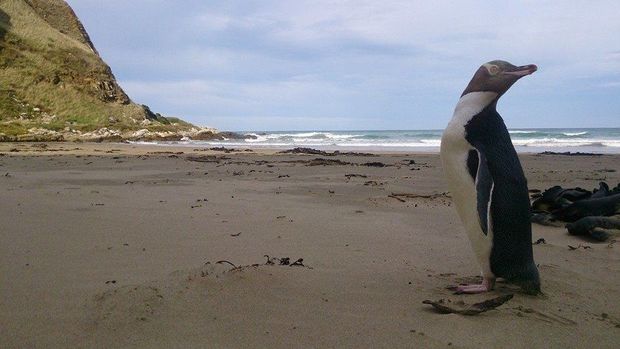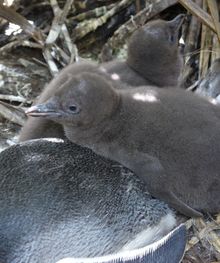14 December 2015
Conservationists are worried about the sharp drop in
yellow-eyed penguins breeding this season, with nest numbers reaching
their lowest since 1990.
A count showed fewer than 190 breeding pairs on the Otago coast this season.
But Ms Murray said that was not the only battle the endangered bird faced, having previously contended with avian diphtheria, a toxin that killed adult penguins and barracuda bites. "We found earlier this year a large number of birds had leg and lower abdomen injuries which required veterinary care in most situations and in a couple of situations euthanasia was involved.
Ms Murray said about 50 chicks have already died this season. "Penguin numbers have hit rock-bottom compared to the previous years. We believe that that's an impact of the last four breeding seasons which had been extremely poor."
Ms Murray said that was due to a mass die-off thought to be caused by an unidentified toxic agent that killed more than 70 adults and juveniles on Otago Peninsula in early 2013. But the chicks did not escape unscathed either. In December 2013 many chicks starved early in the season and those that survived to fledge-age were emaciated and unlikely to survive at sea.
The number of penguins needing rehabilitation increased to 329 across three Otago rehabilitation centres, straining resources and requiring tonnes of fish supplies, said Ms Murray.

Yellow-eyed penguin chicks
"They also don't understand that at this time of the year penguins are coming back from sea with full bellies ready to feed their chicks and the longer they stay in the water and you keep them from getting back to the nest and the hungry chick, the more that food is digested by themselves. So in fact it's another starvation technique by disturbing [them]."
source


















No comments:
Post a Comment